@NathanFrame suggested I post the process of growing hops “from seed to beer” so here we go!
I didn’t actually grow my hops from seed. It’s easier to start with a rhizome. Hop rhizomes are small roots that are cut from the main root system of a mature female hop plant. This guarantees your plants will be female, avoiding pollination.
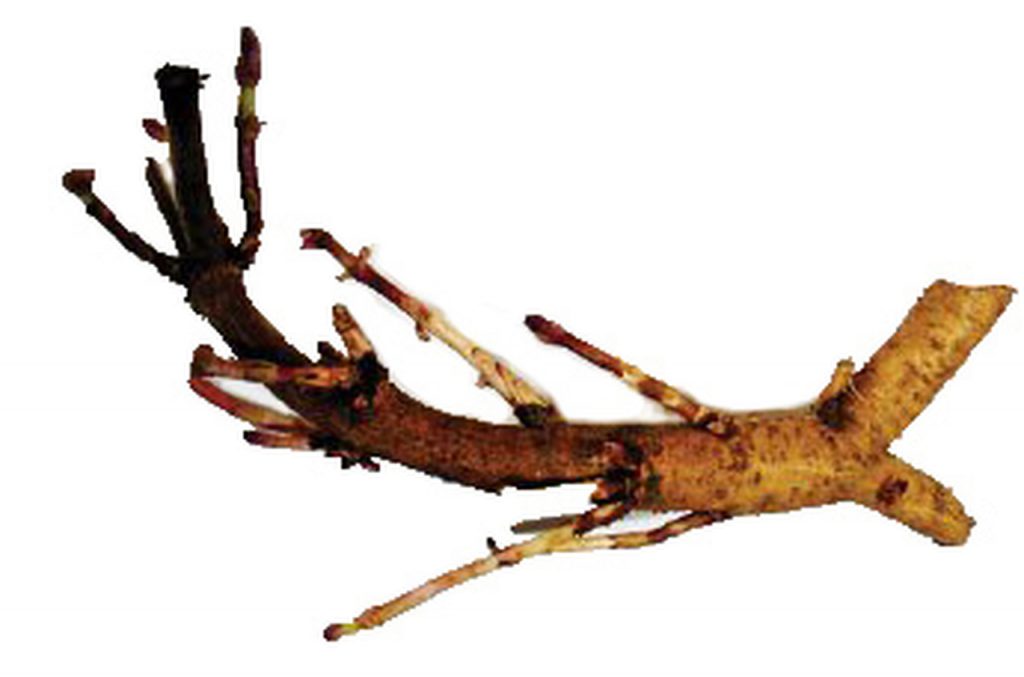
You can get hops rhizomes from your local homebrew shop or order them online. Plant your rhizome horizontally in a few inches of dirt.
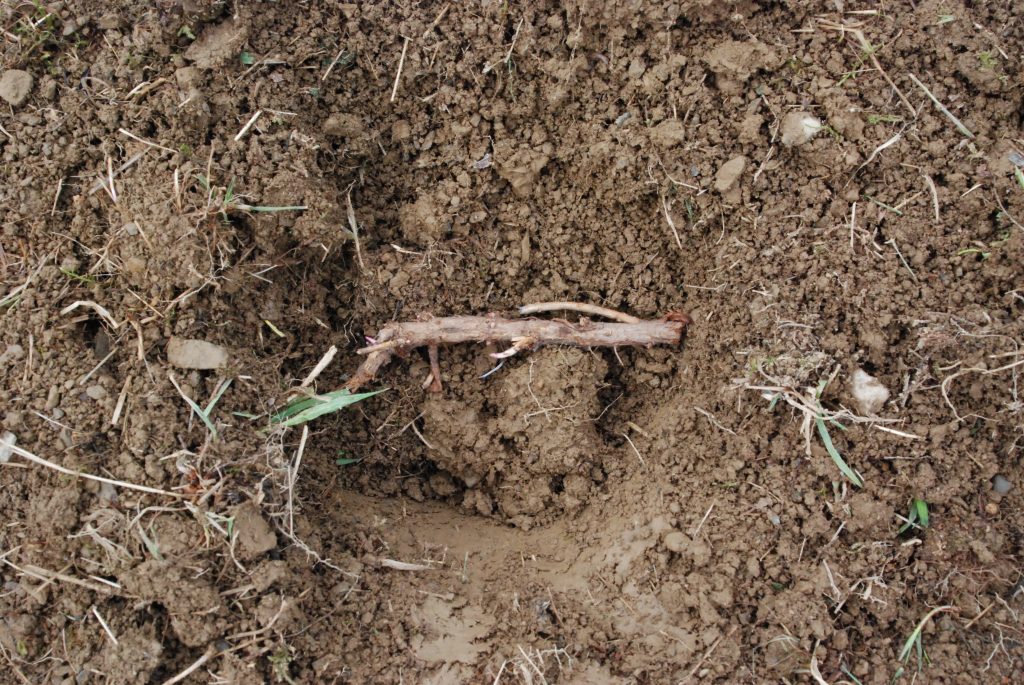
You’ll want to plant your rhizomes in the spring. Hops are a bining plant, so they like to climb. You’ll want to give them something to climb. I put a long 4×4 in the ground and connected four cables to eye hooks at the top. I attached the other end of the cables to stakes next to the rhizomes.
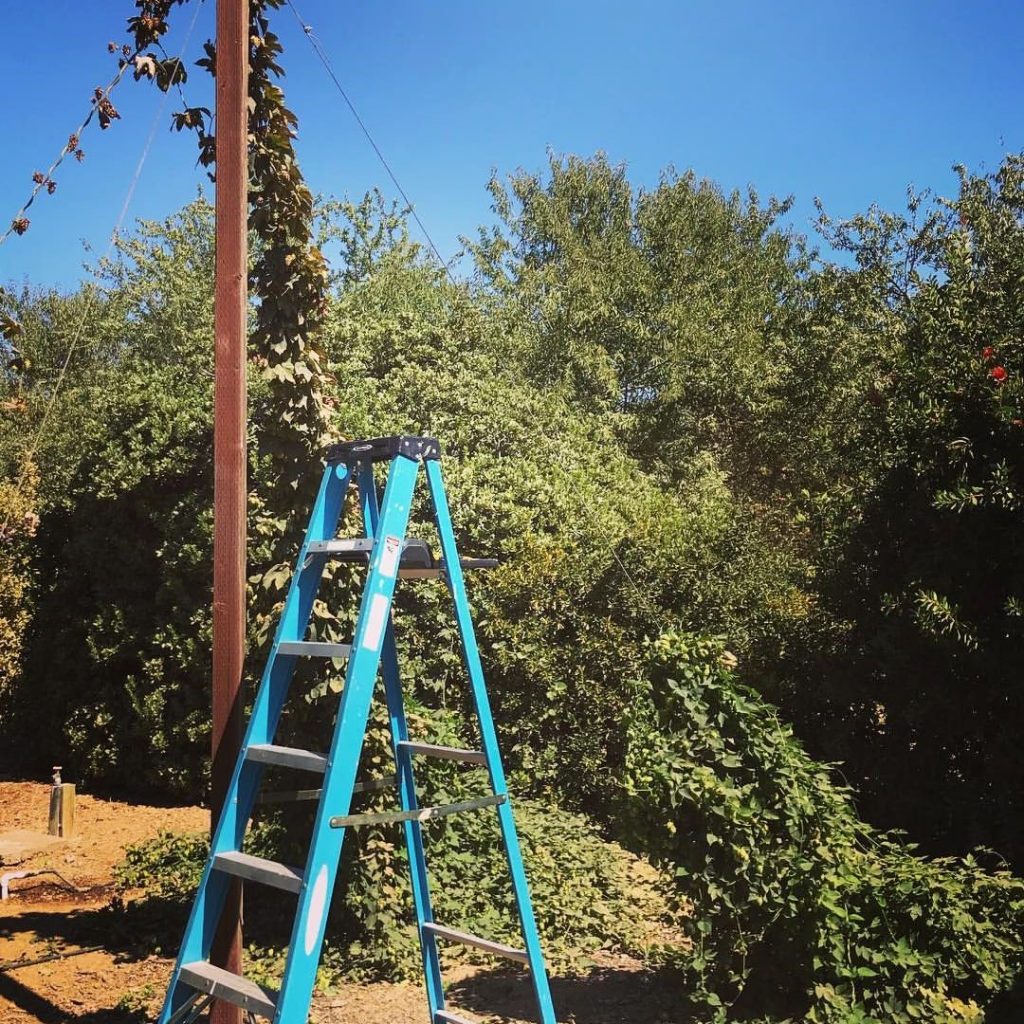
I put my hops on a timer so they get a little water each day. Other than that I don’t do much with them. You can fertilize or train the bines, but I usually don’t bother.
Watch out for pests. I’ve had trouble with spider mites, aphids, and worms.
The bines will climb to the top and you’ll start to see hop cones form.
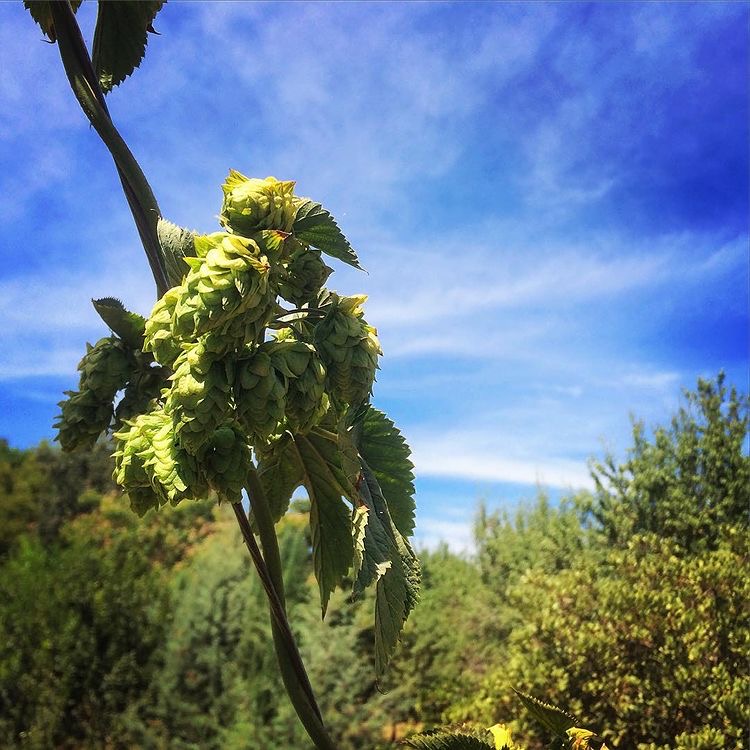
The cones will be ready to harvest by late summer. Pick the cones off of the bines. Once you’ve collected the cones you should cut the plant down to the ground. The rhizomes are hearty and will probably survive until spring when they’ll sprout again.
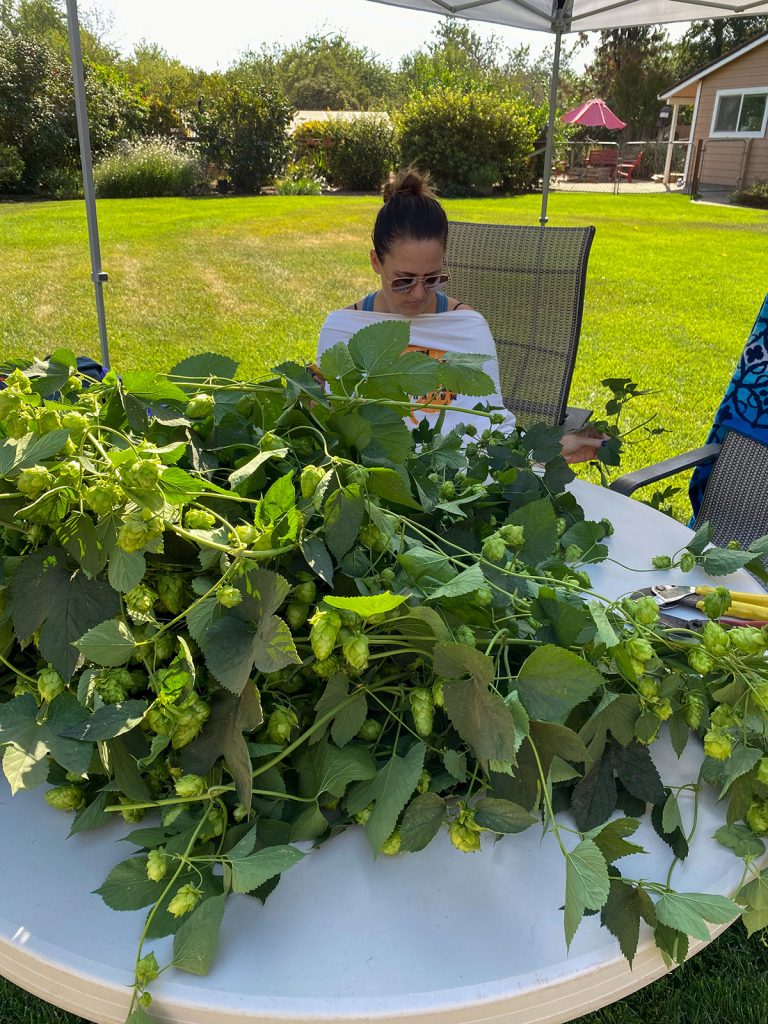
Unless you’re going to immediately brew a “wet hop” beer you need to dry your hops. I use a food dehydrator on the lowest setting. You can also lay them out on a screen to air dry. Dry your hops within a few days or they will go bad.
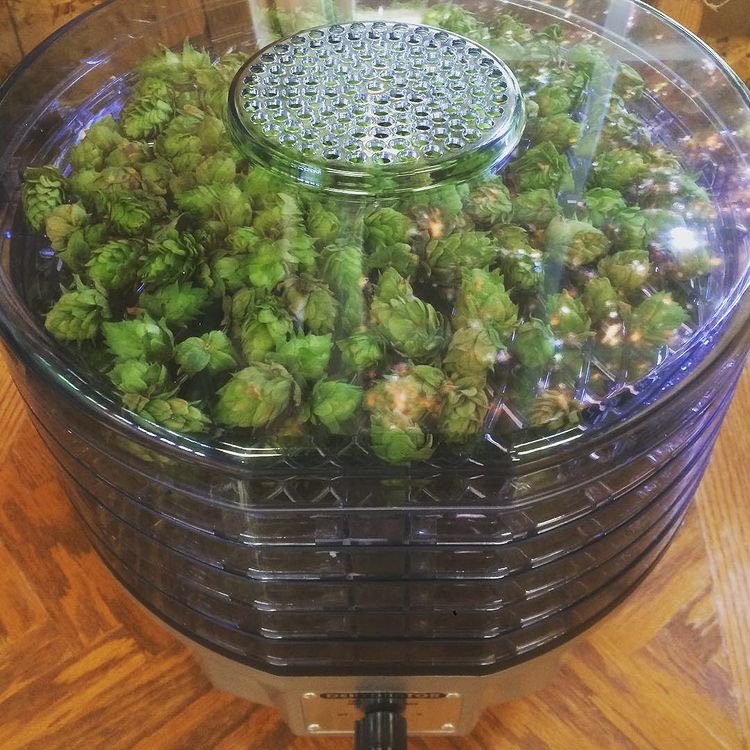
I vacuum seal my hops and store them in the refrigerator or freezer depending on when I’m planning to use them.
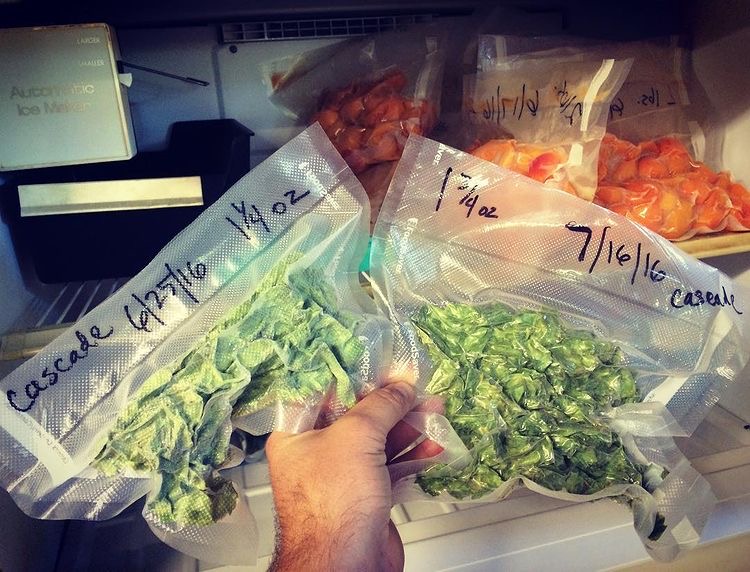
On brew day hops are usually added to your boiling wort. The longer the hops boil the more bitterness (and less of their other flavors) they impart. For less bitterness, and more hop flavors (citrus, pine, etc.) add hops right before removing from heat.
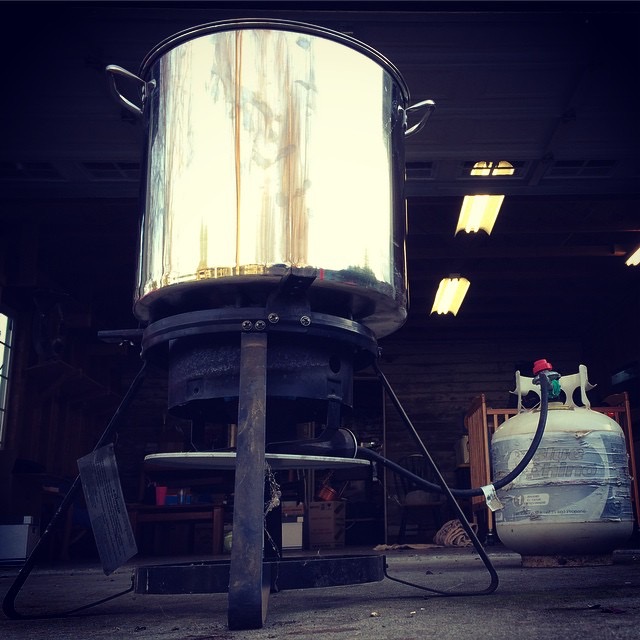
You can also add hops during fermentation. This is called dry hopping. This adds hop flavor without adding bitterness.
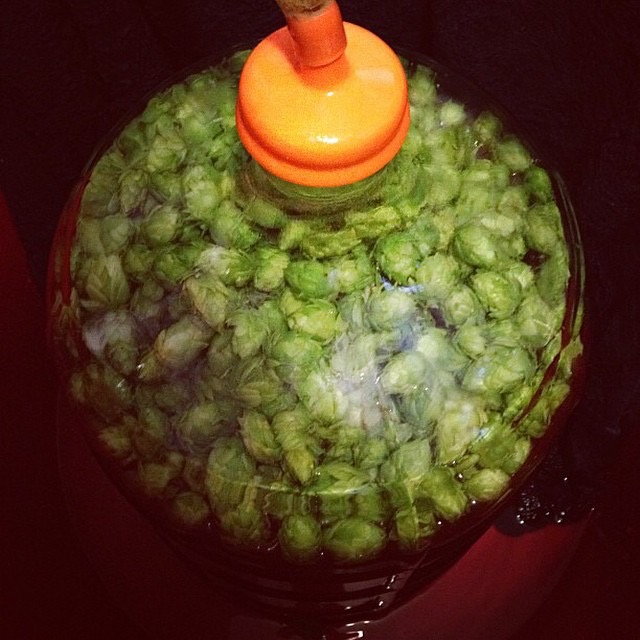
Most people dry hop for a few days. Once fermentation is complete (a week or two) your beer is ready to drink!


You must be logged in to post a comment.